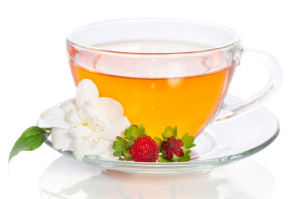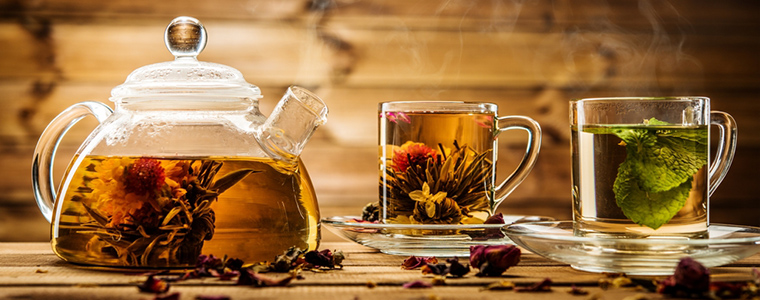What is often consumed as a flavorful substitute for water or coffee has now had a rise in popularity for weight loss. People enjoy the fact that it offers convenience and that it is available in a low to no caffeine beverage product that has no calories. It can alternate as a hot beverage or it can be drank cold, so clearly there’s open room to enjoy. Also there’s many different varietals from herbal, black, green, white, and many others that fall somewhere in between.
However now there is an emphasis on showing how one can gain a reduction in weight by consuming certain diet teas. It may seem farfetched but the idea behind diet teas is that it is intended to provide an all natural option for weight loss. So is it useful and if so how much? Or does it rank as just another fad?
What It’s Meant To Do
Some brands are intended to do all or some of the following. Increase the rate of metabolism, decrease the storage of fat cells, or keep you from feeling hungry. That is what the often reported intention is. Certain brands market themselves as being diet teas and other tea products feature the same ingredients, yet the diet tea makers charge more. So reading the label is important to figure out the key differences and seeing if the ingredients aren’t simply found in tea makers without a marketing ploy. However the strategy needs to be explained in full detail.
How It Functions
- Metabolism Booster- This is intended to occur by introducing caffeine. Not a big wonder and often supplement brands will add it to their formulas. One issue is how much of an effect can be felt? Well it depends on the caffeine which must be finely tuned. Too much of it and you are in the midst of a huge side effect roller coaster including headaches, insomnia, irritability, restlessness, tremors, and rapid heart rate to name the most common. So if it is balanced one may experience a minor increase in metabolism but it really depends on your own makeup. The effects may be barely noticeable and unfortunately the body adjusts, meaning gradually it won’t affect you in the same fashion.
- Fat Blocker- The process is intended to occur with teas who have a high rate of antioxidants such as green and white tea. Basically lipolysis which breaks down fats in the body, is ramped up through its antioxidant properties. So far all the research offered has been inconclusive. Certain studies on obese people for example did show a reduction in fat, while others showed no change.
- Appetite Suppression- What can lead to this is caffeine, however it is often recommended to be consumed not on an empty stomach as it can promote flatulence and diarrhea. Other herbal teas that do not contain caffeine have certain properties intended to keep you from eating. Fennel tea for example is intended to suppress appetite while licorice tea is intended to control blood sugar levels. Unfortunately neither of the products has had any extensive research to suggest it will reduce hunger.
- Laxative- If one is so inclined there is the potential for some reduction in weight if consumed for some time. However the nature of a laxative ensures you are spending plenty of time on the bathroom, essentially having to get rid of calories through one’s stool. Also one has to supplement with extra water and often it is suggested to seek a physician’s advice to ensure safety. It’s not uncommon to experience a lot of diarrhea, indigestion, bloating, and gas. Also there is a potential for dehydration and a lack of nutrient absorption.
Another similar idea is to introduce a diuretic. Now what this intends to do is make you urinate more in order to reduce water weight. So naturally frequency of bathroom trips are increased, however the same side effects as a laxative may be felt. Also worth noting is that it is not seen as a long term solution and positives are typically only minor if they are felt at all. As with the laxative it is recommended to get the advice of a medically trained person to ensure proper functioning.
Pros
 Easy to prep
Easy to prep- Widely available
- More flavorful than water
- Can be prepared either hot or cold
- If it has caffeine, it provides less than an average cup of coffee
Cons
- Not much studies performed on effective weight loss
- Some may not like drinking tea
- Side effects are common in certain brands
- Often far more expensive than regular tea as it is marketed as being a diet tea
- Some brands recommend being supervised by a medical professional
Breaking It Down
So now that the basic rundown is figured out, it is noticeable how many issues and positives are in each product. Some just don’t contain the firepower to work with noticeable effects, while others prove too laden with side effects. Also although it is all natural, there is still a warning for many of these brands to consult a medical professional. Not only are these teas meant to be short term options but the effects can be potentially uncomfortable.
Looking at the thermogenic metabolism boosting properties in some, still there really hasn’t been enough studies on it to prove it will actually work. However some studies performed have shown that the high antioxidants found in certain teas is very good for keeping a good immune system. Still as far as dieting goes there still needs a bit more research done.
There’s no question there are some good flavors available and that it can be tastier than plain water. Also the ease is one of the big factors that lure people in. Since they are widely available in many stores it also makes for a convenient item. Still more proof is needed in studies to showcase the effectiveness of a diet tea.
